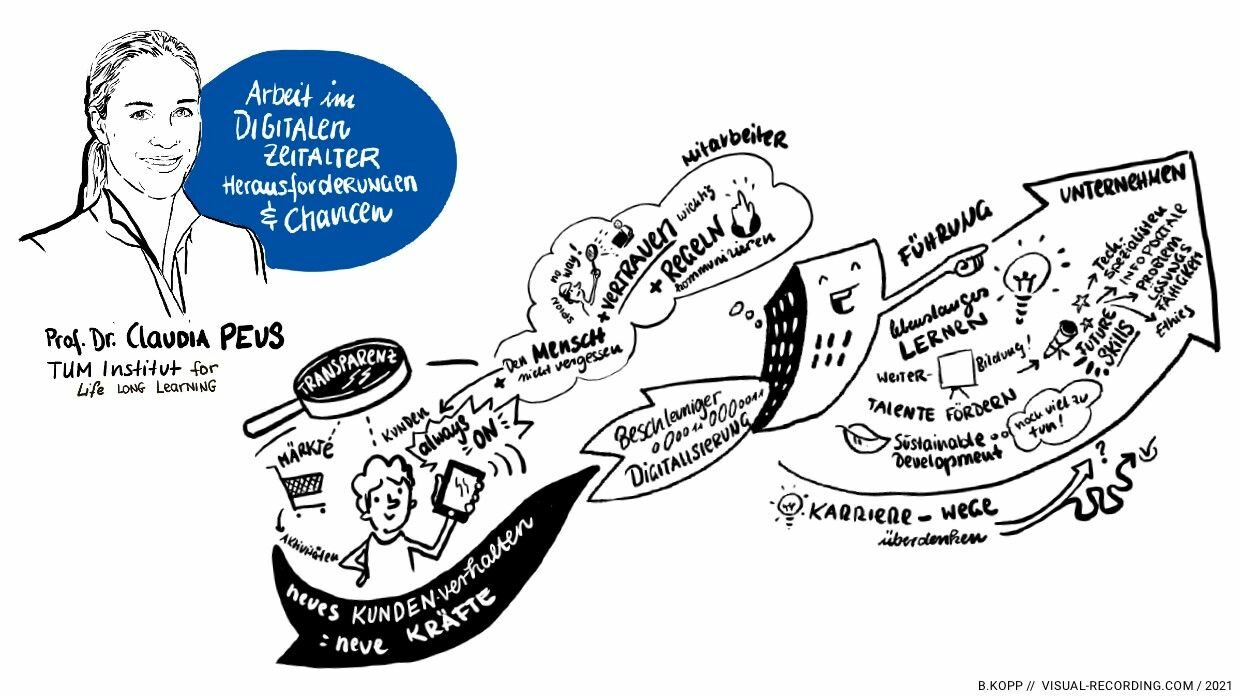How can the digital transformation of the world of work be actively shaped? In order to answer this question, the Bavarian State Ministry for Family, Work and Social Affairs has set up the topic platform Arbeitswelt 4.0. At the third network conference in the fourth quarter of 2021, the focus was on the question of what impact the corona pandemic has on our working world. Prof. Dr. Claudia Peus, Founding Director of the TUM Institute for Lifelong Learning, gave a speech on “Work in the digital age: Challenges and Opportunities.“
Companies are confronted with a real explosion of data in the digital age: innovative technologies and new dynamics such as crowdsourcing and changed customer behavior are increasing the dynamics of our working world. In addition, digitalization is also influencing areas such as talent management, collaboration in departments and teams and is changing hierarchies, explained Prof. Dr. Claudia Peus, who is Senior Vice President Talent Management & Diversity at the Technical University of Munich. She gave the keynote speech at the network conference after the welcome speech by Carolina Trautner, Bavarian Minister of State for Family, Work and Social Affairs.

Responsible employee management in the digital age
The developments present managers with major challenges in the first step. Prof. Dr. Peus’ most important thesis in her lecture was therefore: Trust and a values-based approach are the basic prerequisites for successful leadership in the digital age: Despite all digitization, the focus is still on the person with their wishes and needs. The challenge becomes an opportunity for managers if they become aware of these principles and actively shape digital cooperation, for example. Guardrails can be clear and coordinated rules on team behavior, communication and cooperation. Which tool do we use for which purpose? How quickly do we respond to e-mails in the team?
Effective business management: What are the future skills?
In the course of her speech, Prof. Dr. Peus emphasized that competences also have to adapt quickly in the rapid dynamics of digitization: Lifelong learning is essential in order to be able to meet the challenges of the 21st century effectively and responsibly. Among the new digital basic skills are the ability for virtual collaboration and interaction, but also topics such as digital literacy and digital ethics. If specialists and managers become aware of these new skills and take the first step on their lifelong learning path, they can take advantage of the opportunity of digitization for themselves personally, but also for their company or organization.
